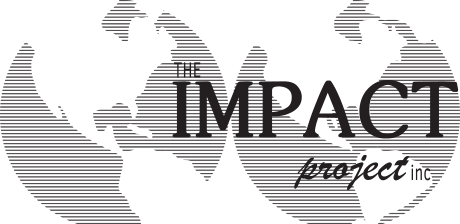

Diversion Programs
The IMPACT Project and Lehigh County have been in partnership since 1999 to offer diversion programming to all eligible youth. Several other contiguous counties and select counties statewide are currently exploring similar partnerships with IMPACT.
Pre-adjudication diversion is defined as providing opportunities for youth who would otherwise face formal processing in the court system. The goal is to avoid an adjudication of delinquency or conviction for a summary offense. Directing them into an alternative program, including treatment when appropriate and enhancing their education.
In 2015, the Juvenile Court Judges’ Commission added a field to the statewide Pennsylvania Juvenile Case Management System (PaJCMS) to identify school-related offenses. There were 6,154 delinquency allegations received in 2022 with the most serious alleged offense identified as school-related, which is 31.6% of all delinquency allegations. Currently, suburban and rural deliquency allegations are comprised of more than 40% of school-based crimes and urban is well over 50%. The need for Diversion programming for school-based crime is both necessary and essential.
2024 Calendar Year Lehigh Valley Total Referrals
In 2011, Lehigh County courts modified the rule of juvenile procedure to allow all police departments to make direct referrals to The IMPACT Project for summary and misdemeanor offenses. Lehigh County Rule of Juvenile Procedure
Lehigh County 2024 Calendar Year Diversion Referrals
2024 Lehigh County Community Justice Panel Referrals
2024 Lehigh County School Justice Panel Referrals (Urban)
2024 Lehigh County School Justice Panel Referrals (Suburban)
Northampton County 2024 Calendar Year Diversion Referrals
Contractually, we operated a Community Justice Panel program for the fiscal year 2023/2024 for Northampton County Juvenile Probation. Within that contract, we accepted referrals from the Bethlehem and Easton Middle Schools, as we looked to determine if there was a need to create School Justice Panels within the county.
As a result of the 139 referrals coming from the aforementioned middle schools, Northampton County elected to contract with The IMPACT Project in 2024/2025 to run both Community Justice Panels and School Justice Panels.
In 2025, The Northampton County DA’s office created and signed a Memorandum of Understanding (MOU) which allows all police departments to make direct referrals to The IMPACT Project for summary and misdemeanor offenses. (MOU) created by Northampton County DA’s Office
2024 Northampton County Diversion Referrals
To further work in this last area, Pennsylvania formed its Mental Health/Juvenile Justice (MH/JJ) Workgroup. This group, comprised of representatives of the state’s juvenile justice, mental health, child welfare, drug and alcohol, and education systems, worked to find ways to better coordinate services for youth who become involved in the juvenile justice system. In 2006, the Commonwealth of Pennsylvania issued the Mental Health/Juvenile Justice Joint Policy Statement (“Joint Policy Statement”) as a blueprint for creating a model system that responds appropriately to youth who may not need to become directly involved with the juvenile court (including those youth identified as being in need of mental health treatment).
The Diversion Committee of the MH/JJ Workgroup developed a document entitled “Guide to Developing Pre-Adjudication Diversion Policy and Practice in Pennsylvania” which lays out a vision of a model system that makes greater use of pre-adjudication diversion. This approach focuses on providing opportunities for youth who would otherwise face formal processing in the court system to avoid an adjudication of delinquency or conviction for a summary offense. Instead, youth are directed into an alternative program, including treatment when appropriate.

"Don’t let life discourage you; everyone who got where he is had to begin where he was."

%
CJP Recidivism Rate for summary offenses and low-level misdemeanors (13.5 year longitudinal study)
%
CJP Recidivism Rate including higher level Misdemeanors as well as downgraded Felonies (5 year longitudinal study)
* Control group had double the recidivism rate
%
SJP Recidivism Rate (5 year longitudinal study)
%
